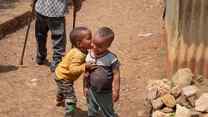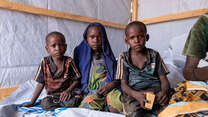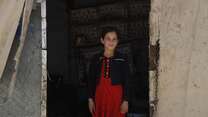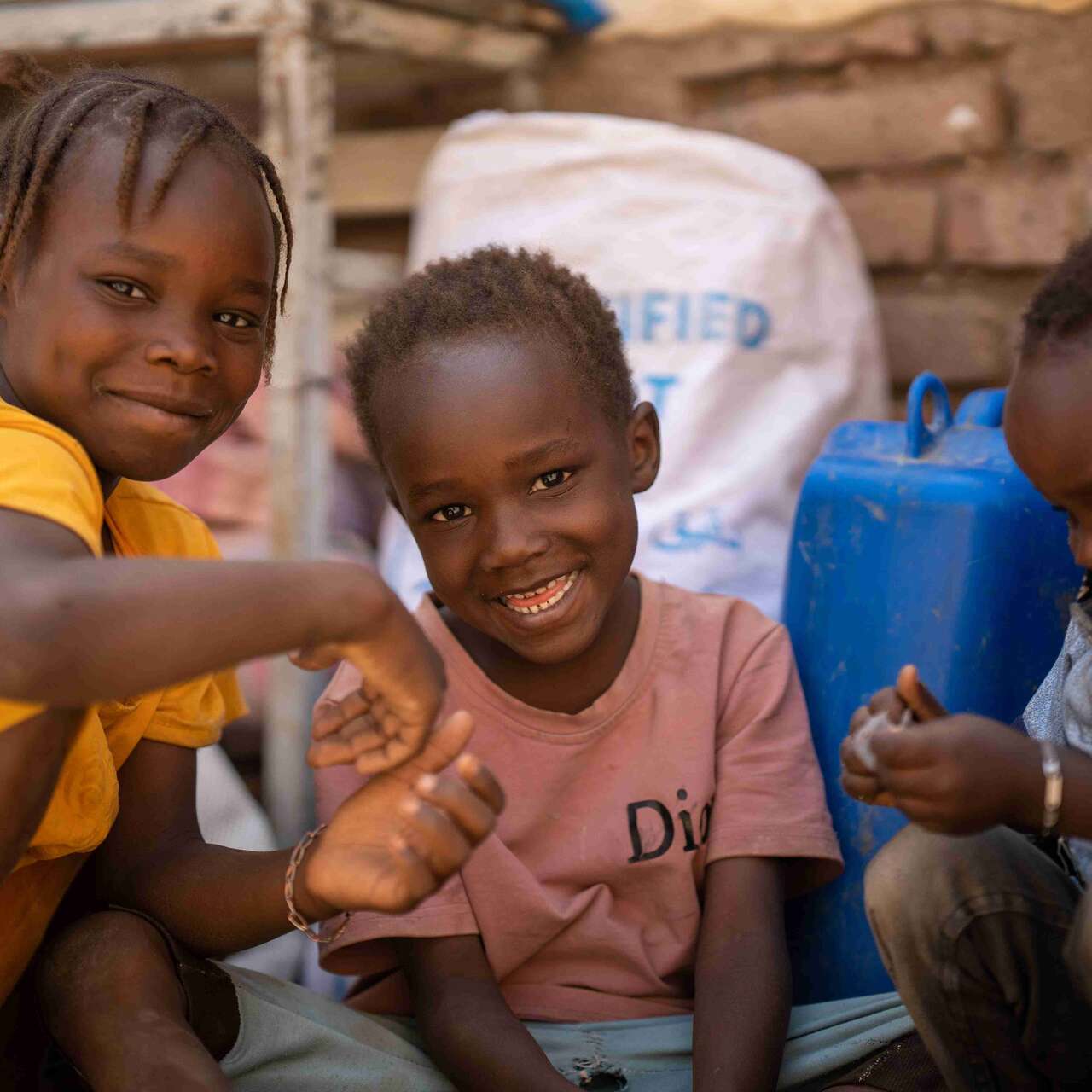
How has displacement in Sudan impacted millions of children?
Since the conflict in Sudan erupted in April 2023, the country has witnessed a staggering humanitarian crisis, with over 14 million people displaced from their homes. Among those most affected are children, bearing the brunt of the devastation.
Today, around 14 million children urgently need assistance. Of these, 7.4 million have no access to safe drinking water, and 2 million have missed out on critical vaccinations.
Malnutrition is another dire consequence, with 4 million children under the age of five suffering from acute hunger with many of them trapped in conflict zones where humanitarian aid remains out of reach.
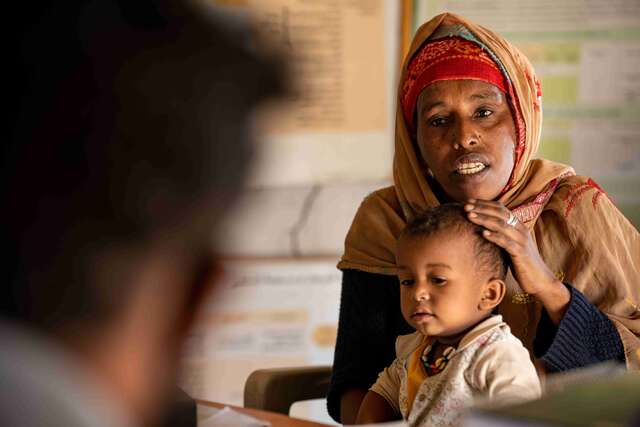
Displaced by conflict, stricken by malnutrition
Eighteen million people are facing severe food shortages, putting their lives at risk due to a lack of affordable and accessible food. Conflict-driven inflation has caused food prices to soar by 300% in some parts of the country since the conflict began, worsening already harsh living conditions.
Nearly 4 million children under the age of five are suffering from acute malnutrition, and without medical treatment, more than 700,000 children with severe acute malnutrition are at risk of dying from starvation.
This dire situation is reflected during the 2024 lean season where 750,000 people in Sudan experienced extreme food insecurity, with starvation becoming a daily reality for many.
Malnutrition takes a heavy toll on children, leaving them weak. A severely malnourished child is 12 times more likely to die from common illnesses like diarrhea and cholera.
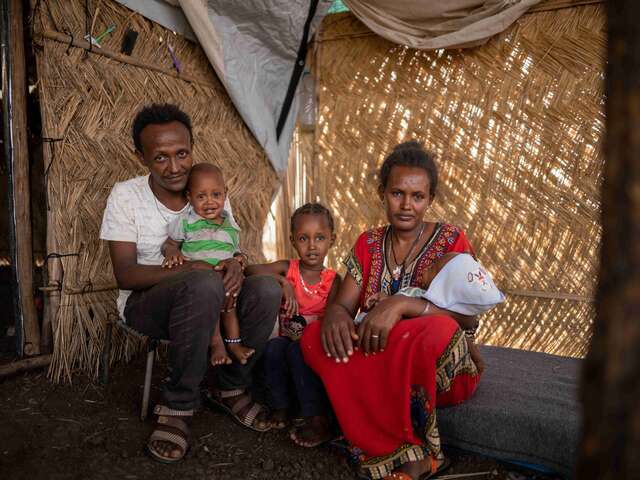
Mental health on the brink
The people of Sudan face daily dangers, from thefts to violent attacks, leading to widespread mental health issues with children being particularly affected.
According to a World Health Organization (WHO) study, 22% of people affected by conflict are likely to develop a mental disorder, such as post-traumatic stress disorder, depression, anxiety, schizophrenia, or bipolar disorder. Among them, 1 in 11 (9%) will suffer from moderate to severe conditions.
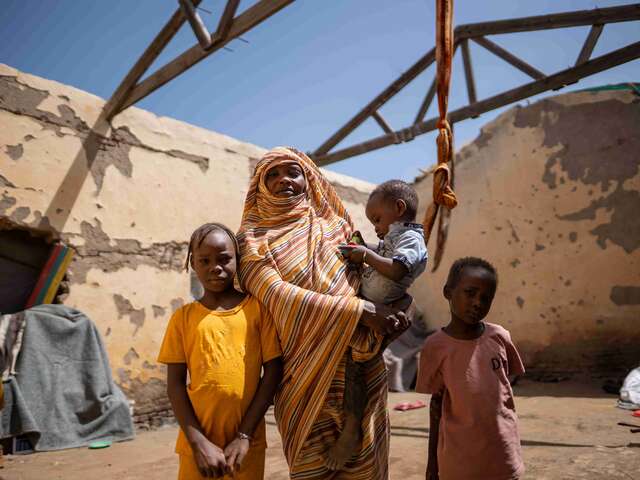
Compounding the crisis, hunger is a psychological stressor that can lead to disorders like depression, anxiety, shame, and stress. As a result, an estimated 15.7 million children and their families affected by the crisis in Sudan are at risk of mental health issues, caused by the combined challenges of hunger and conflict.
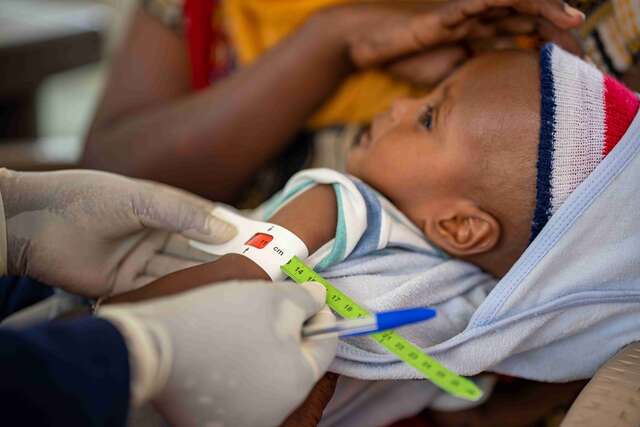
Surge in gender-based violence
The United Nations Population Fund (UNFPA) estimates that 6.7 million people in Sudan are at risk of gender-based violence (GBV), with women and girls, especially those who are displaced, being the most vulnerable.
The conflict in Sudan has generated a 500% increase in cases of killing, sexual violence and recruitment of child soldiers since it began.
In a report on GBV released at the end of 2023, UNHCR revealed that women and girls in Sudan are suffering the most from the conflict, facing alarming levels of sexual violence.
Many of those fleeing the violence have experienced or witnessed harassment, abduction, rape, sexual assault, exploitation, and other forms of abuse during their journey with the aftermath being deeply traumatic.
Through EU-funded clinics, the IRC offers mental health consultations, addressing the needs of individuals at the primary healthcare level and through community-based activities. Their support spans from the early stages of a mental health crisis to the recovery process.
Education crisis threatens children
When it comes to education around 19 million children (1 in 3 of children in Sudan) are out of school.
This lack of access to education has devastating consequences, leaving children vulnerable to exploitation, GBV, early marriage, child labor and recruitment into armed groups.
How the IRC with EU support helps people in Sudan?
With the support of the European Union’s humanitarian aid, the International Rescue Committee (IRC) is providing life-saving help to families in Sudan who have lost everything. From access to food, clean water, and medical care to psychological support for women and children who have endured unimaginable trauma, this aid is making a real difference.
In places like Port Sudan and White Nile State, the IRC is on the ground, delivering emergency cash assistance, setting up safe water sources, and offering critical protection services. As the crisis deepens, the IRC is expanding its reach to areas like River Nile and Darfur, striving to give everyone a chance to survive and recover.
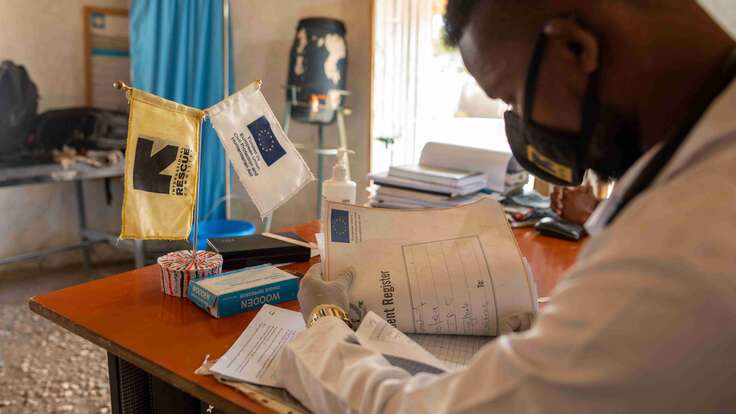
The International Rescue Committee partners with the European Union to provide life-saving support to people caught in conflict and disasters around the world. Our work funded by the EU enables people to survive, recover and rebuild their lives.

